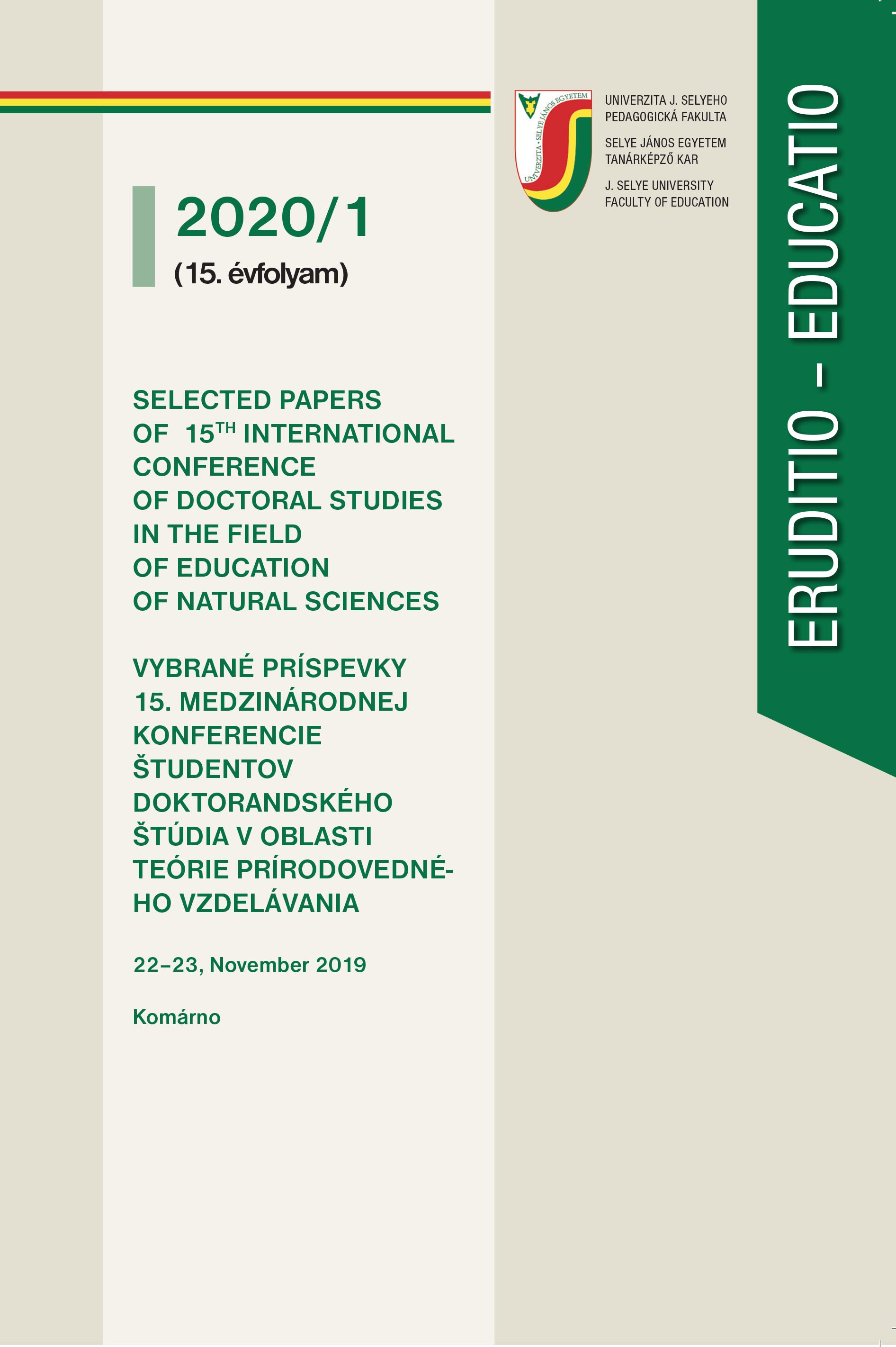Príprava obsahu predmetu CLIL a jeho overenie v pregraduálnej príprave budúcich učiteľov prírodo-vedných predmetov
Preparation of the CLIL Course Content and Its Verification in Pre-gradual Edu-cation of Future Science Teachers
Author(s): Barnara Kordíková, Beáta BrestenskáSubject(s): Social Sciences, Education, School education
Published by: Pedagogická fakulta Univerzity J. Selyeho
Keywords: bilingual education; science; CLIL; future teachers
Summary/Abstract: The increased demand for bilingual education has resulted in a growing need for pro-fessionally and linguistically qualified teachers whose shortage is evident in most Slo-vak schools. As science subjects form a major part of bilingual school curricula, we have realised that the specific pre-gradual training for prospective bilingual science educators is inevitable. Our idea was reinforced by our pre-research into perceptions of future science teachers concerning foreign languages and prospective teaching bi-lingually. Despite concerns and unease in bilingual teaching such as emotional dissat-isfaction, difficulty and uncertainty, the prospective teachers still consider it beneficial and valuable with up to 40% of students claiming their interest in teaching science in a foreign language.As a result, we decided to provide the students of the teacher training programme at the Faculty of Natural Sciences, Comenius University in Bratislava with an optional course for teaching science through a foreign language – a CLIL course. Our current research deals with the planning and preparation of the CLIL course content which is the central topic of our conference presentation. Based on the semi-structured interview with the participants and a method of semantic differential carried out at the beginning, during and at the end of the course, we would like to verify the significance of the CLIL course in pre-gradual education of future science teachers. The analysis of CLIL-based teaching materials prepared by the course participants will also be the part of the research.We believe that this research could bring a positive response particularly among the teacher candidates combining science subjects and a foreign language. Moreover, this new course could also eliminate student uncertainty, enhance their zest for sci-ence teaching in foreign languages and minimise concerns about delivering bilingual education.
Journal: Eruditio - Educatio
- Issue Year: 15/2020
- Issue No: 1
- Page Range: 53-63
- Page Count: 11
- Language: Slovak

